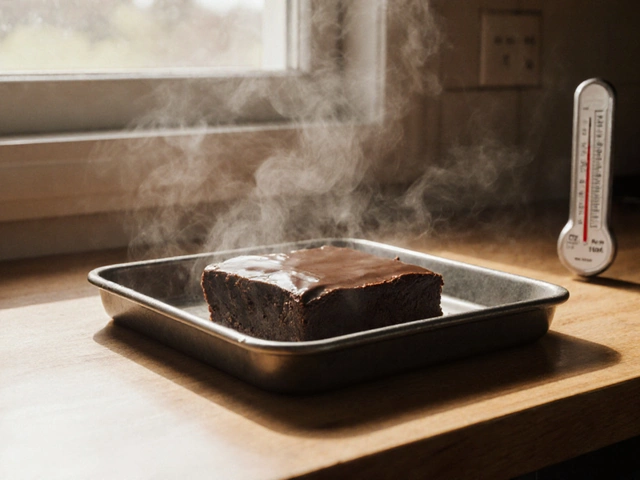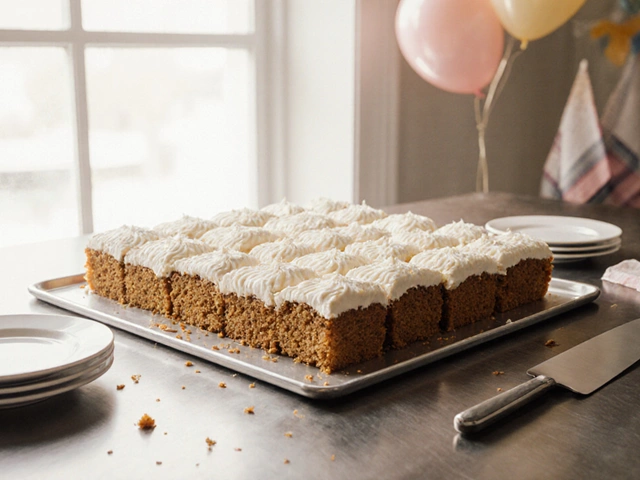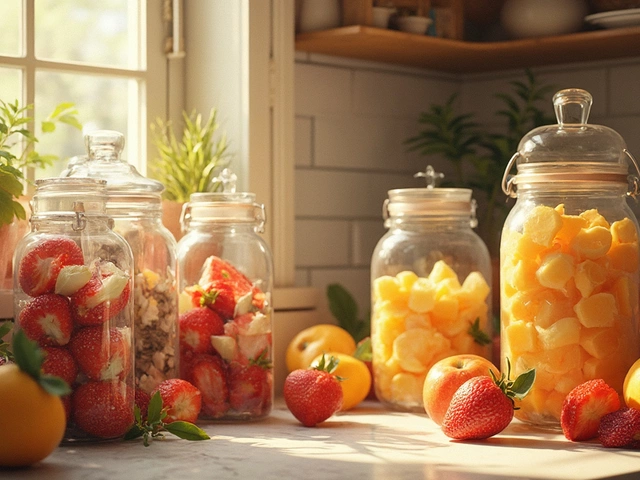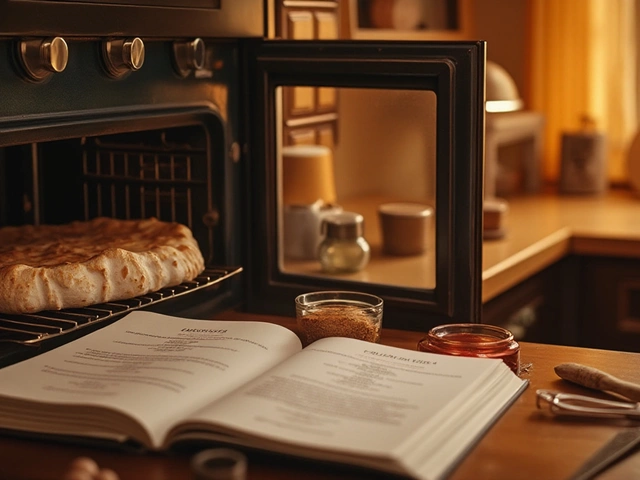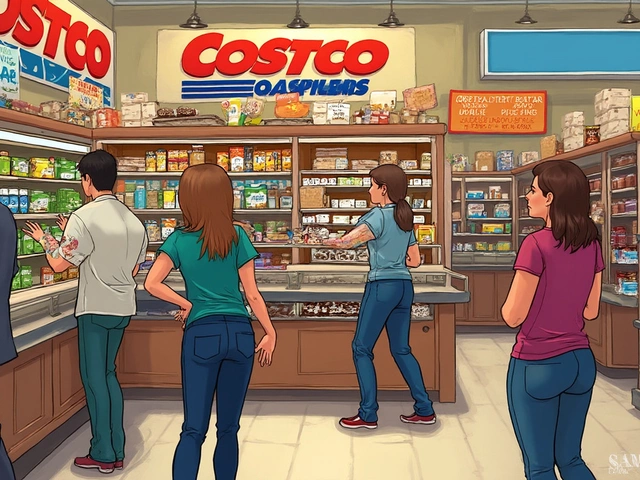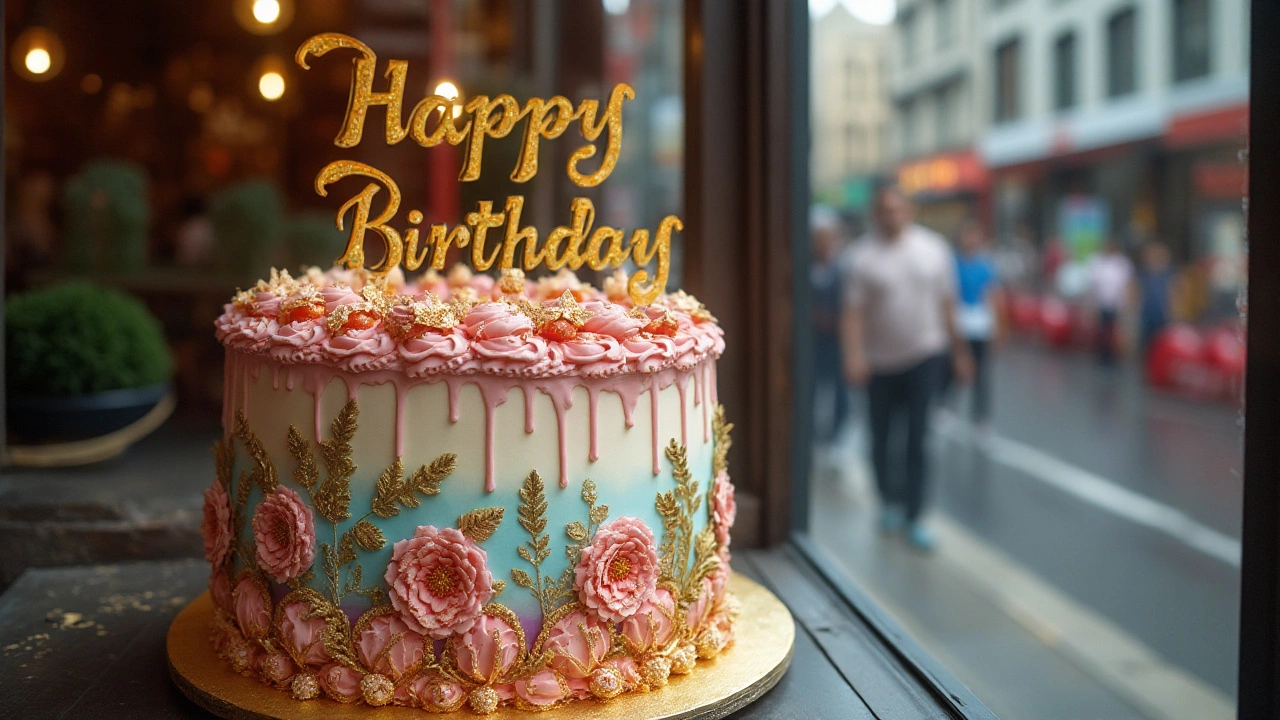
Few things signal the start of a well-celebrated birthday quite like the unveiling of a stunning birthday cake. These edible masterpieces have gone far beyond simple confections, becoming sophisticated creations that display artistic prowess and personal flair. However, this transformation has not been without its costs.
Anyone tasked with buying a birthday cake knows that the price tag can sometimes cause a double-take. With each swirl of frosting and crafted figure, the bill can climb quickly, leaving many to wonder why a cake—once an affordable treat—now demands so much from our wallets. From the lavish use of quality ingredients to hours spent on intricate designs, the value of a cake is not just in its flavor, but in the artistry and effort behind its creation.
It's essential to understand the comprehensive process and elements contributing to the cost. This awareness not only justifies the expense but also arms birthday planners with the knowledge to make savvy choices, whether opting for bespoke designs or considering more economical routes.
- The Art of Cake Decoration
- Quality Ingredients and Their Influence
- Time and Skill Investment
- Budget-Friendly Alternatives
The Art of Cake Decoration
Creating a birthday cake is akin to sculpting a work of art, where the cake decorators transform a combination of simple ingredients into a visual and gustatory masterpiece. The process of cake decoration has evolved significantly over the years, reflecting cultural trends and individual preferences. The use of fondant and ganache instead of the traditional buttercream has introduced new textures and flavors to cake design, allowing for smoother finishes and intricate detailing. This shift is part of what makes modern birthday cakes more elaborate and consequently more expensive.
Cake decorators, effectively artists in their own right, are now equipped with an arsenal of tools ranging from airbrush kits to edible pigments. Such advancements enhance their ability to execute complex designs that often echo popular aesthetics or themes. For instance, replicating popular TV characters or designing multi-tiered structures demands particular expertise and a keen eye for detail. The culmination of hours, often days, of meticulous work is a cake that not only represents the joy of the occasion but also tells a story, making the cost thereof more understandable.
The level of customization has soared, contributing significantly to the final expense of a birthday cake. Personalized cakes demand more from decorators in terms of time and precision, as each bespoke feature must align perfectly with the client's vision. As an indication of the burgeoning demand for personalization, a 2021 survey showed that over 60% of people chose custom designs for their celebratory cakes. The narrative around these cakes isn't just about taste; it's an experience that melds celebration with occasion-specific artistry, pointing to why the cost is justified.
Highlighting the dedication and skill of cake decorators, Michael Gaffney, a renowned baker, once stated,
"Every cake is a canvas waiting for its magic—a true celebration of love and imagination."This sentiment underscores the labor of love that is cake decoration, justifying its price as it intertwines craftsmanship with culinary delight. The advent of new techniques and tools continues to raise the bar, enabling the creation of stunning pieces that push the boundaries of what was previously thought possible.
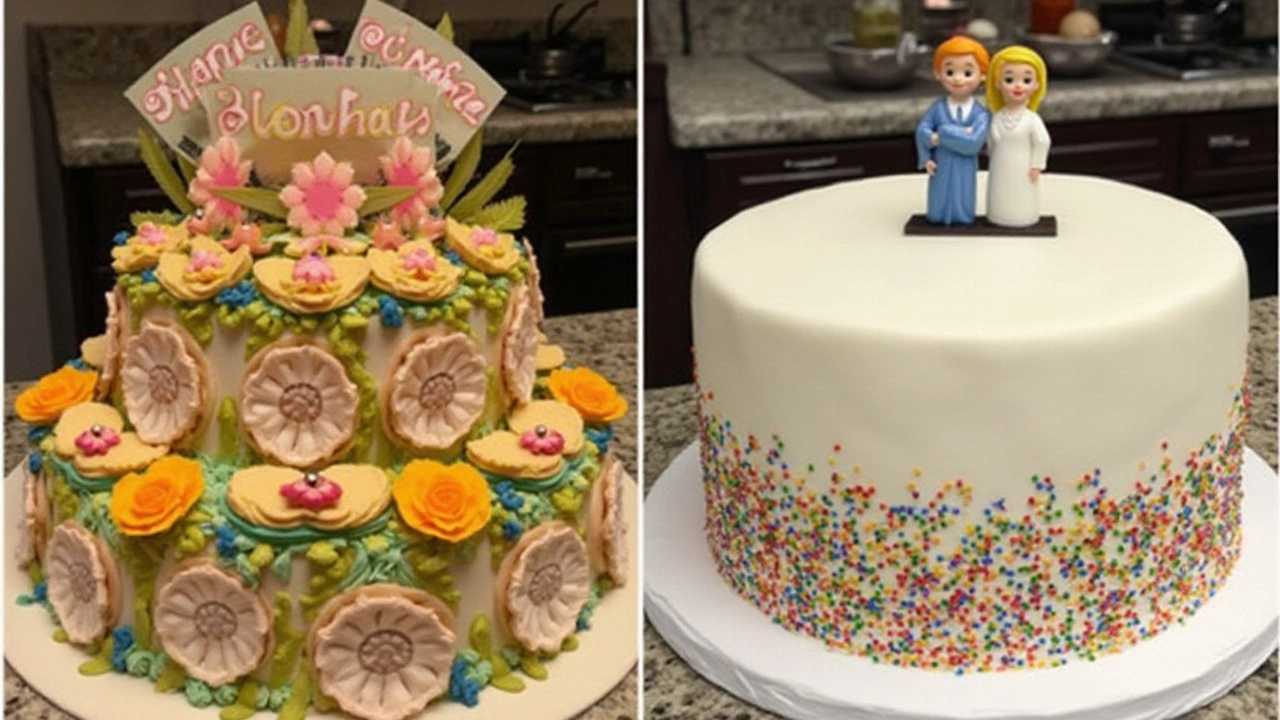
Quality Ingredients and Their Influence
When it comes to birthday cakes, quality doesn't come cheap. The decision to use premium ingredients is a significant factor in the final cost of these celebratory desserts. Bakers select the highest-quality flour, butter, and chocolate to not only enhance flavor but also ensure texture and durability that mass-produced cakes cannot match. These components guarantee that a cake not only looks stunning but also delivers an unforgettable taste experience. For instance, consider the choice between using real vanilla extract instead of imitation vanilla. The genuine article is notably more costly but adds a depth of flavor that artificial alternatives simply cannot replicate.
Moreover, the impact of using high-grade ingredients extends beyond taste. The structural integrity of a cake often relies on these elements, allowing for more ambitious designs and decorations. A cake infused with organic eggs, high-fat butter, or even bespoke combinations of gluten-free flours must be handled with precision and care, reflecting in its price. Bakers often forge partnerships with local farms and suppliers to procure fresh and sustainable ingredients, another decision that influences cost. As famed chocolatier Jacques Torres famously said,
"Life is too short to eat bad chocolate,"underscoring the principle that quality ingredients are fundamental to creating confections that stand out.
The health-conscious consumer also plays a role in ingredient selection, with an increasing demand for natural replacements and sustainability. Organic and fair-trade ingredients, non-GMO flours, and pasture-raised eggs do not come cheap but cater to discerning palates and ethical choices. This demand for higher standards has encouraged bakers to adopt refined sugar substitutions, dairy alternatives, and specialty additives that cater to allergies or dietary restrictions, each adding layers to the cost. A significant portion of bakers' overheads stems from these superior materials, reflecting their commitment to excellence and taste innovation.
Lastly, a meticulous attention to quality ensures consistency in every bite, a crucial factor for those celebrating important milestones with anticipation. The difference between a good cake and an incredible one often lies in the fine details. A harmonic balance of rich cocoa, velvety creams, and luscious fillings can transform a simple birthday cake into a gourmet pleasure. As more people are willing to splurge on memorable occasions, the market readily provides. Consequently, the careful selection of ingredients not only affects flavor but also aligns with modern values of health, sustainability, and indulgence, creating a true investment in happiness.
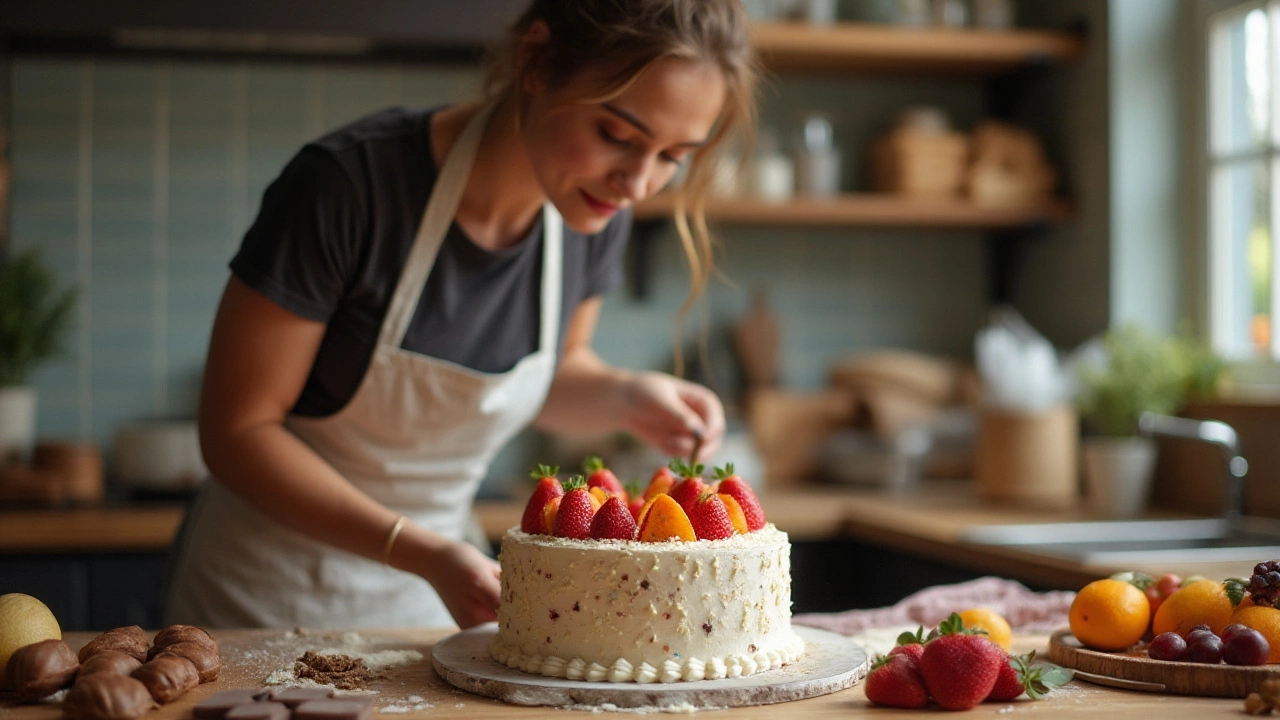
Time and Skill Investment
When it comes to crafting an extraordinary birthday cake, there’s far more involved than the simple act of baking. The journey from batter to breathtaking often demands a significant investment of both time and exceptional skill. For a truly bespoke cake, bakers dedicate hours—even days—to planning, preparing, and perfecting each element, ensuring each detail meets a high standard of artistry and taste. From conceptualizing the design and procuring special ingredients to executing meticulous details such as sugar sculpting or hand-painting—each step requires precision and expertise. This level of craftsmanship elevates a cake from a dessert to a centerpiece, a process that justifies its premium price.
Seasoned bakers, often trained extensively or with years of hands-on experience, bring a unique blend of artistry and culinary science to their creations. The level of detail demanded by some designs requires skills akin to those of a sculptor or painter—think sugar flowers that appear caught in a gentle breeze, or fondant characters full of personality. This can only be achieved through hours of practice and a deep understanding of materials. As Sally Brosmire, famed wedding cake designer, once remarked,
"Every detail of a decorated cake speaks volumes about its maker's dedication and passion; it's a narrative crafted in sugar and flour."
Beyond the elegant designs, bakers also must cater to the increasing demands of clients seeking customization and unique flavors. This entails additional time spent experimenting with recipes to achieve the perfect balance of taste and aesthetics. Whether developing a complex new flavor or achieving the exact shade requested for icing, these tasks require a blend of creativity and methodical practice. Time-sensitive elements, such as tiered cake structures that must withstand the party ambiance, involve careful planning and structural engineering know-how.
The timeline for crafting these edible pieces of art often includes intricate schedules that extend beyond the visible layers. Considerations such as cake settling times, periods for flavor blending, and multiple frosting layers needing refrigeration, all are essential aspects that add to the preparation period. For some complex cakes, a baker might need to schedule eight to ten hours spread over a few days to achieve the perfect result.
Time Breakdown for Complex Cakes
Here’s a rough breakdown of the time typically involved in making a custom birthday cake, illustrating why such cakes command higher prices:
- Design and Planning: 1-2 hours
- Prepping Ingredients: 1-2 hours
- Baking Time: 2-3 hours
- Cooling Periods: 3-4 hours
- Decorating and Detailing: 4-6 hours
This table shows there is a significant time commitment involved in creating these masterpieces, often resulting in an admirable display that’s well worth the investment. Each tier, each flourish, each delicious bite carries the imprint of a baker’s dedication and craft.

Budget-Friendly Alternatives
Celebrating a birthday doesn’t always have to break the bank, especially when it comes to choosing a cake. While elaborately designed confectionery might come with a hefty price tag, there are numerous ways to delight your guests without overspending. One popular option is the homemade cake. Baking at home not only cuts costs significantly but also offers a personal touch to your celebration. Countless recipes online help even beginners craft beautiful and tasty birthday cakes with ease, often costing less than half what a commercial bakery charges. This DIY approach also allows you to control ingredient quality, ensuring a delightful treat for all dietary preferences.
Some budget-conscious hosts opt for a minimalist style which has become quite trendy. A simple cake adorned with fresh fruits or a drizzle of chocolate not only looks elegant but also feels luxurious without the extra cost. Another clever choice is to purchase a plain cake and embellish it at home. Local groceries often sell basic cakes at reasonable prices, and a few piping bags of icing or sprinkles can transform them magnificently. For those who still want the professional touch, consider purchasing a smaller, high-end cake for ceremonial cutting and serving larger, sheet cakes for the crowd.
Additionally, alternatives like cupcakes or cake pops are growing popular for birthday celebrations. These bite-sized treats can be made in bulk, offer variety in flavors, and often involve less expense. They are also easy to serve, reducing the need for plates and utensils. A recent survey found that three out of five party planners chose cupcakes over traditional cakes for their flexibility and cost-effectiveness.
According to Sarah Jones of The Baking Expert, “Creativity can stretch a budget considerably. A well-placed topper or themed decorations elevate even the simplest cake into a conversation piece.”
Scrutinizing local bakeries for sales or discounts, particularly during off-peak seasons, can also yield surprising bargains. Many bakeries offer promotions that allow customers to enjoy top-tier cakes at a fraction of the regular price. Joining mailing lists or checking social media pages of local confectioners can keep you in the loop about such deals. By employing these strategies, one need not compromise on the cake cost to host a memorable celebration.

